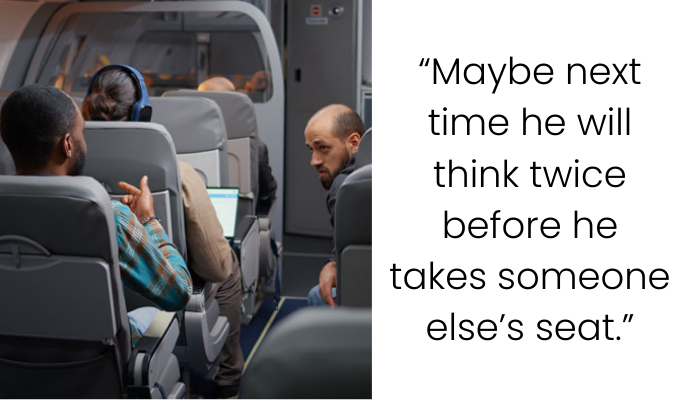Airline Seat Etiquette: Passenger’s Refusal Sparks Unintended Consequences
On a recent flight from Athens to London, a passenger encountered an unexpected situation when another traveler occupied his pre-assigned window seat. Despite polite attempts to reclaim his spot, the individual remained unresponsive, prompting the rightful occupant to reluctantly settle into the middle seat. The dynamics shifted when a fellow passenger requested a seat swap to sit beside her friend. Seizing the opportunity, the original passenger agreed, inadvertently placing the seat intruder next to a larger individual, leading to a cramped experience for him. This incident underscores the importance of adhering to assigned seating and the potential repercussions of disregarding such protocols.
There’s economy class, business class, and then there’s entitlement class, where you don’t buy the seat; you just claim it with confidence
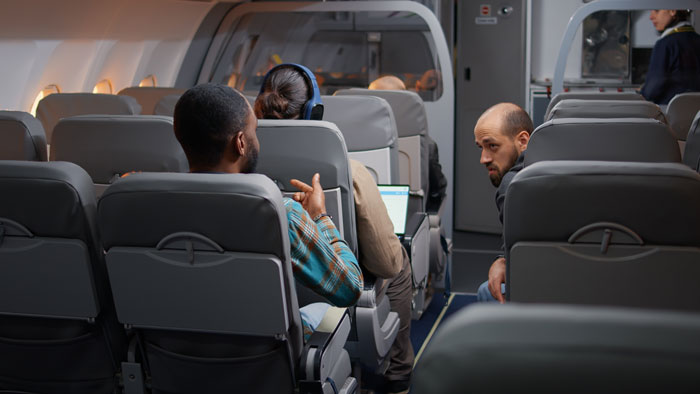
One man takes revenge on an entitled passenger who steals his window seat on a flight by swapping places with an overweight woman
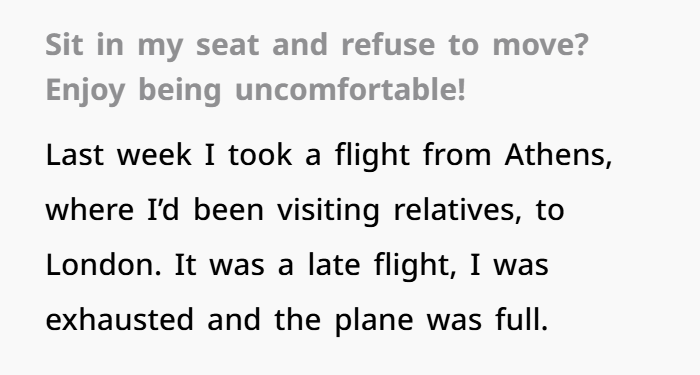
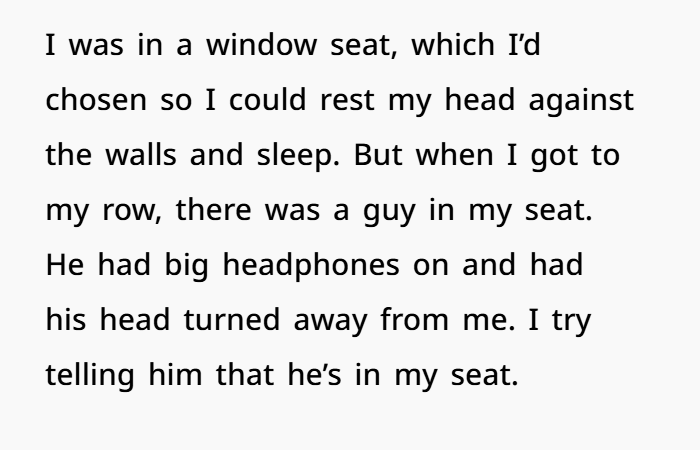

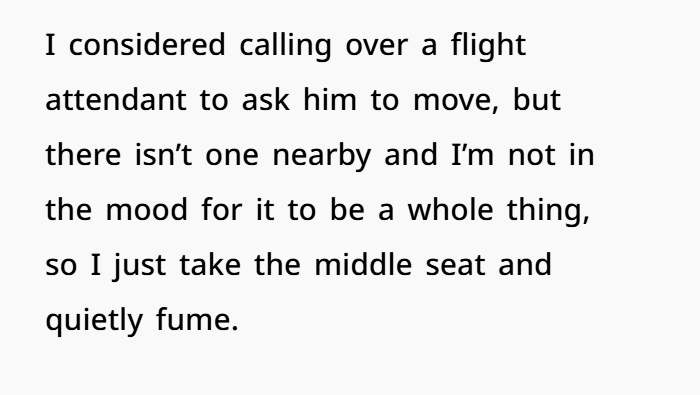
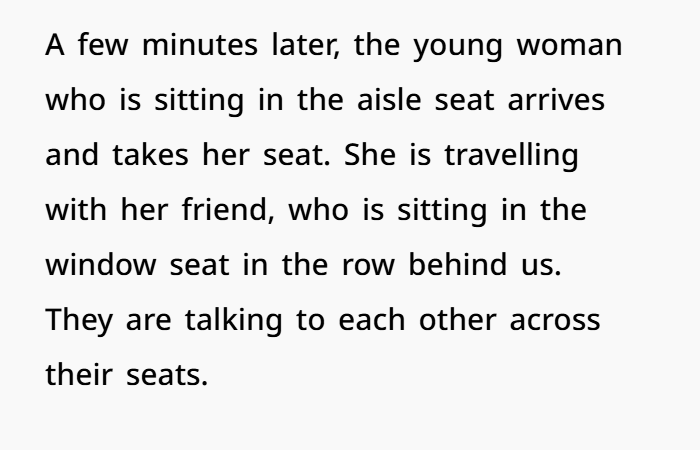
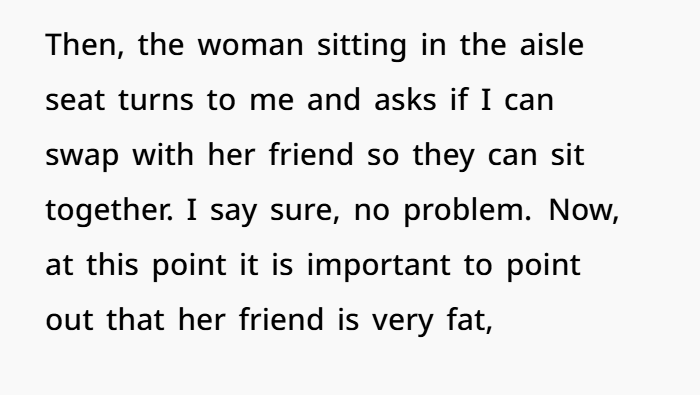

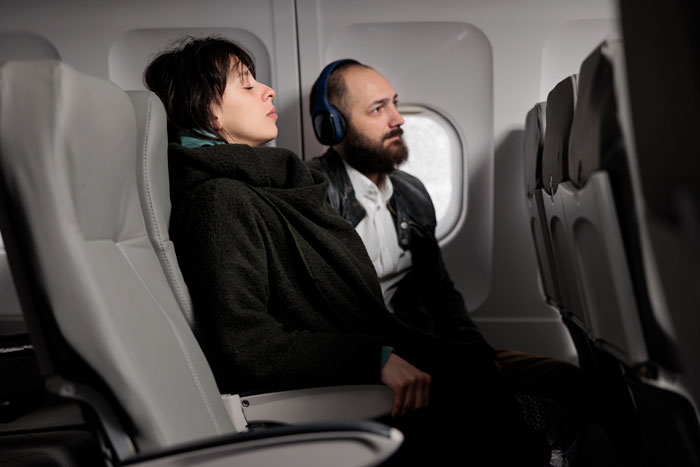
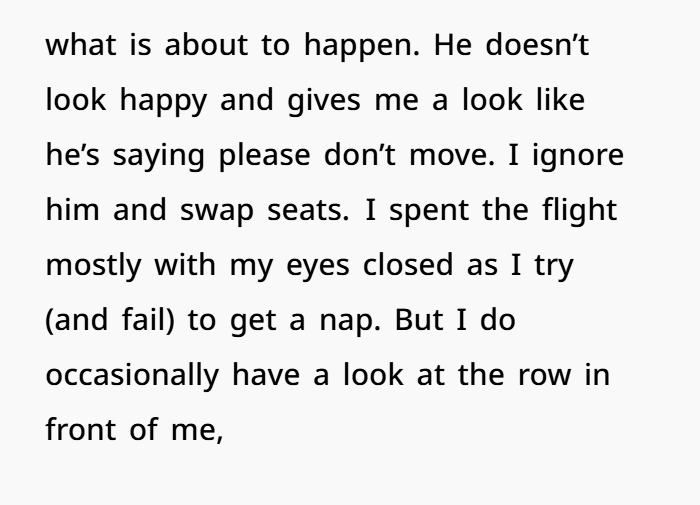
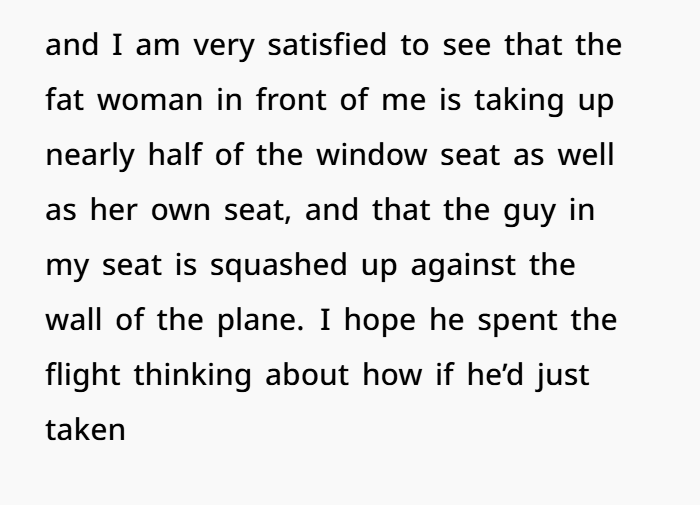
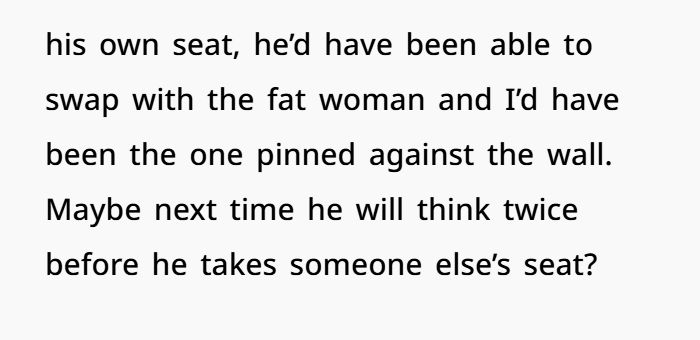
The Unspoken Rules of Airline Seating and the Consequences of Disregarding Them
Air travel, while a marvel of modern transportation, often brings together a diverse group of individuals with varying expectations and behaviors. The story shared earlier highlights a common yet contentious issue: seat assignments and the etiquette surrounding them. The incident where a passenger occupied another’s assigned seat and refused to move underscores the importance of understanding both the formal policies and the unwritten social norms that govern our shared spaces in the sky.
Understanding Airline Seat Assignments and Passenger Rights
When purchasing an airline ticket, passengers often select specific seats based on personal preferences, such as proximity to the aisle, window views, or extra legroom. These choices are not merely about comfort; they can significantly impact a traveler’s experience, especially on long-haul flights. However, it’s crucial to recognize that, legally, purchasing a ticket guarantees transportation from point A to point B, not necessarily a specific seat.
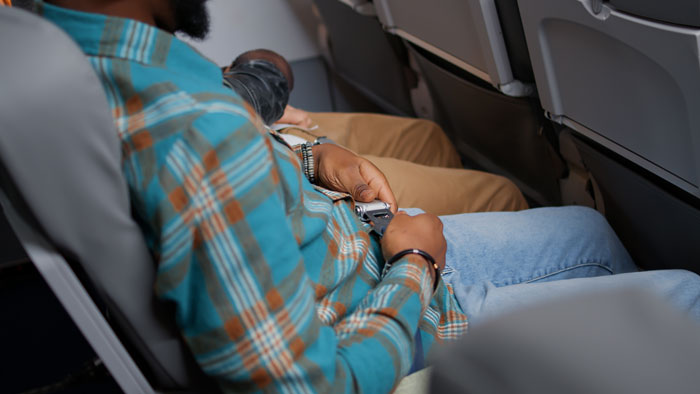
Airlines operate under a “Contract of Carriage,” a legal agreement that outlines the rights and responsibilities of both the carrier and the passenger. This contract often includes clauses that allow airlines to change seat assignments for various reasons, including operational needs or accommodating passengers with disabilities. While such clauses are standard, they are typically exercised with discretion and in specific circumstances.
The Etiquette of Seat Swapping
Beyond legalities, there’s an unspoken code of conduct among travelers regarding seat assignments. If a passenger wishes to change seats, the courteous approach is to request a swap politely, ensuring that the proposed exchange is equitable. For instance, offering a middle seat in exchange for a window or aisle seat is generally considered inappropriate unless the other party is amenable.
In the narrative provided, the individual who took another’s seat without permission violated this etiquette. Such actions not only display a lack of respect for fellow passengers but can also lead to discomfort and tension during the flight. It’s essential to remember that each passenger has selected their seat for a reason, and unsolicited changes can disrupt their travel plans and comfort.
The Consequences of Disregarding Social Norms
The repercussions of ignoring seat assignments extend beyond personal discomfort. In some cases, disputes over seating have escalated to involve flight attendants or even law enforcement, leading to delays and a negative experience for all involved. For example, a notable incident occurred in 2017 when a passenger was forcibly removed from a United Airlines flight due to an overbooking situation, sparking widespread outrage and discussions about passenger rights.

While the aforementioned case involved overbooking, it underscores the broader implications of seating disputes. When passengers disregard established norms and policies, it can lead to significant disruptions, legal consequences, and damage to the airline’s reputation.
Promoting a Culture of Respect and Understanding
To foster a more harmonious travel environment, both passengers and airlines have roles to play. Passengers should respect seat assignments and approach any desired changes with courtesy and understanding. Airlines, on their part, can aid by clearly communicating policies, facilitating seat swaps when appropriate, and training staff to handle disputes diplomatically.
Moreover, as air travel continues to evolve, there’s a growing need for public awareness campaigns that educate travelers about their rights and responsibilities. Organizations like FlyersRights.org advocate for passenger rights and can serve as valuable resources for those seeking information and support.
Netizens had a field day with this story, enjoying the outcome of an entitled person getting what they deserved


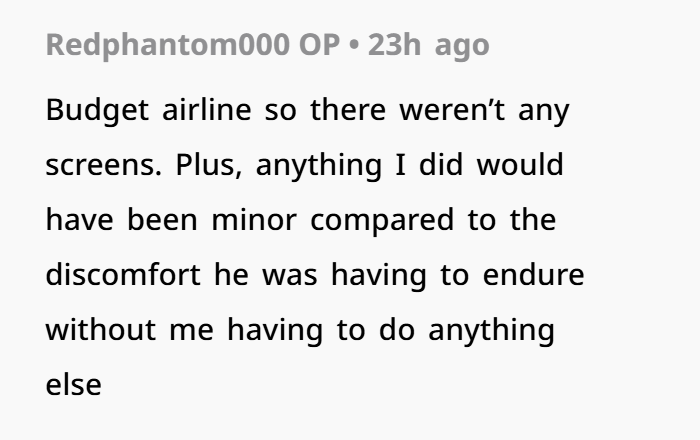
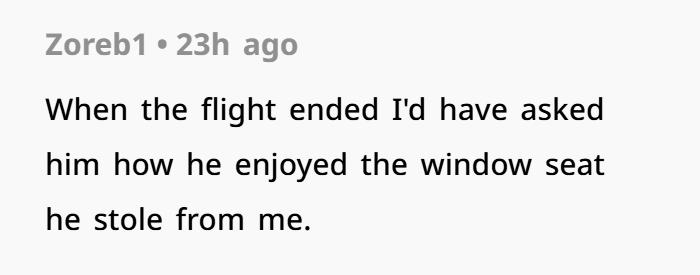

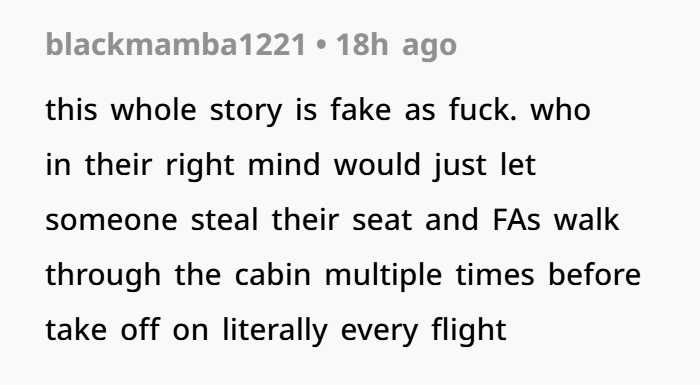


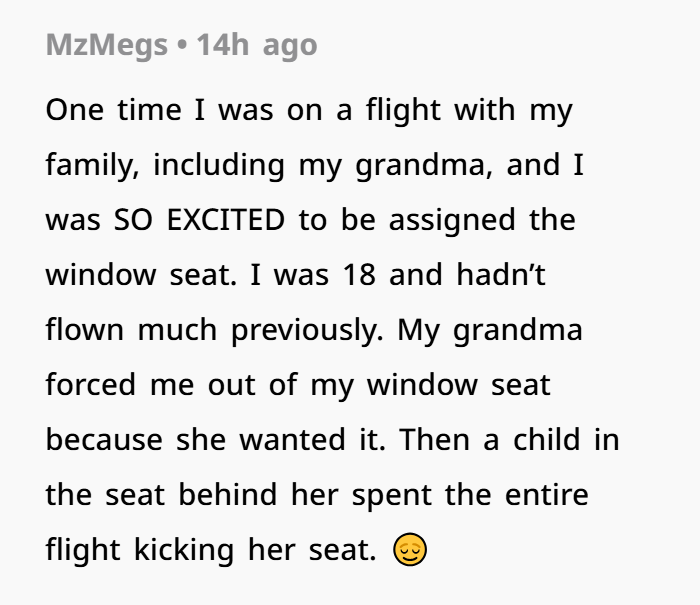
The skies are shared spaces where mutual respect and adherence to both formal policies and social etiquettes ensure a pleasant journey for all. Incidents like the one described serve as reminders of the importance of considering others’ comfort and rights. By promoting awareness and understanding, we can all contribute to a more respectful and enjoyable air travel experience.

